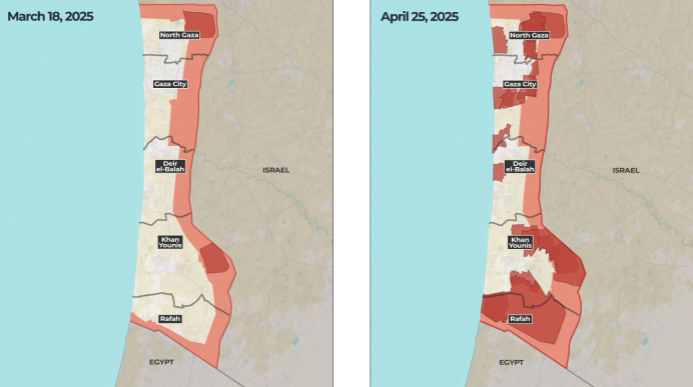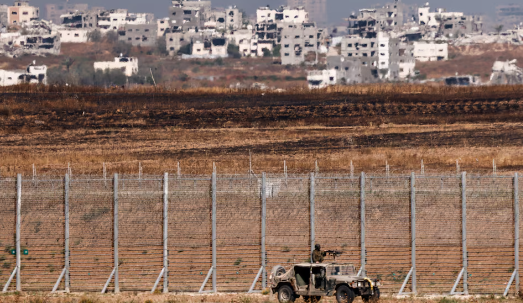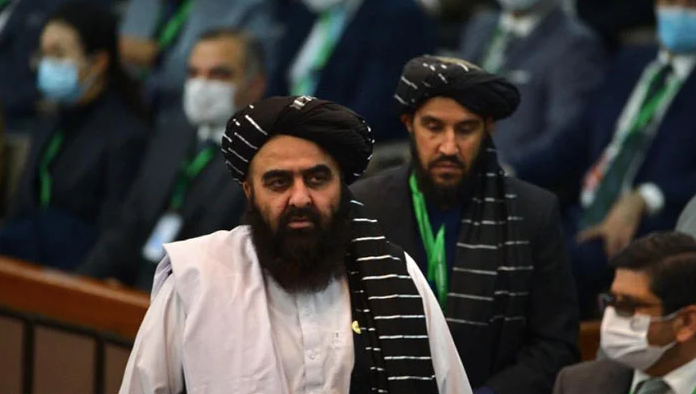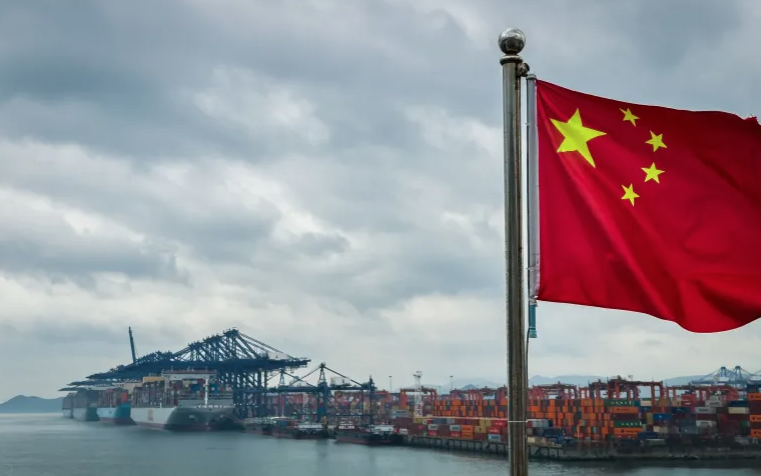WORLD NEWS

Israel has imposed severe restrictions on Palestinians in the Gaza Strip, declaring 70% of the territory a no-go zone or issuing forced displacement orders according to the United Nations Office for the Coordination of Humanitarian Affairs (OCHA). Since March 18, Israel’s military has expanded these orders, severely impacting areas in southern Gaza such as Rafah, and large parts of Gaza City in the north.
Prime Minister Benjamin Netanyahu has announced plans for a new ground offensive in Gaza, aiming to establish a "sustained presence" in the region. This has led to widespread panic, with two million Palestinians facing the potential of being forced from their homes. Netanyahu’s government has also approved calling up 60,000 reservists and placed the military in charge of delivering essential supplies to Gaza.
However, many Palestinians view Israel’s actions as more than a military campaign against Hamas, interpreting the move as a collective punishment designed to change the demographic and political landscape of Gaza. They fear the Israeli government is prioritizing territorial control over any political solution, further suffocating civilians already under extreme pressure.
Humanitarian Crisis:
As the conflict escalates, Gaza is facing an extreme risk of famine. The Palestine Red Crescent Society (PRCS) has reported that food stocks are depleted, leaving over a million displaced people without basic daily necessities. B’Tselem, an Israeli human rights group, has condemned Israel’s actions, accusing the country of using starvation as a method of warfare, as half of those affected are children.
Death Toll:
Since breaking the ceasefire in March, Israeli military actions have resulted in the deaths of at least 2,459 Palestinians in Gaza, bringing the total death toll to 52,567.




